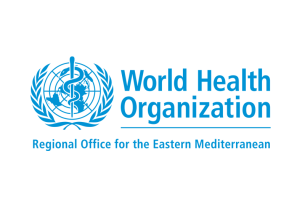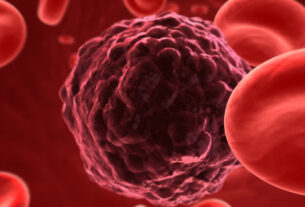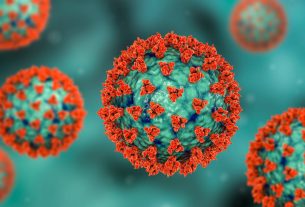By Bob Averack, as told to Hope Cristol
I became an advocate for myasthenia gravis (MG) the hard way. I was diagnosed in 2006, a time before technology connected people like it does today. So, I went through a lot of trial and error when it came to managing MG.
For a while, every time I came up against a trigger, it felt like getting hit on the head with a 2×4. I’m a strong dude who didn’t want MG to dictate how I’d live my life. But MG said to me, “Oh yeah? Well, I’m stronger than you.”
The moment when the light bulb finally went on for good was when I went through a whopper of a myasthenic crisis and ended up in the Cleveland Clinic while on a trip to Florida. After 6 days in the ICU, I finally realized I needed to work with MG instead of fight it.
I’m a co-administrator of a Facebook group focused on healthy eating for MG. For a while I was the moderator of a hospital-based support group under the auspices of the Myasthenia Gravis Foundation of America (MGFA). I’m still one of MGFA’s “go-to” people for talking to people about the disease. Some of the things I talk about, besides the basic medical stuff, are common MG triggers and how to manage them. These are five of the big ones.
1) Extreme temperatures. Down here in Florida, that means heat and humidity. Standing for a few hours in this weather can really knock the stuffing out of you. You might need to lie down to sleep or end up on the couch to rest, and you might even need a pretty significant recovery time after that.
This will have a much smaller impact on your life if you plan for it, because you may not always want to avoid triggering events that are outside, like a beachside retirement party, nature-based volunteer work, or in my case in recent years, political and community activism. Here’s how you can minimize the impact of these occasions:
- Stay well hydrated.
- Find ways to get cool during and after the event.
- Get plenty of rest the night before. If you can’t do that, make naps a priority.
- Manage others’ expectations after the event. You may need time off of work or you may need to cancel other plans.
2) Lack of sleep. Lack of sleep is a major trigger for extreme bodywide fatigue. I think there’s a more profound impact when I’m not getting enough sleep versus if I was just doing physical labor, like helping a family member or friend lift or move things.
I know that if I have a couple of days of too-little sleep, I’m going to be one with my club chair. Lack of adequate sleep makes it pretty hard to muster the energy to do much of anything. My balance is affected, so I’ll be less steady on my feet. My vision is affected, so things look very blurry, very cloudy, like being in a fog. I might even experience shortness of breath, a residual symptom from my myasthenic crisis of 2013.
I can’t stress enough the critical importance of sleep. It’s not just about the rest you need to feel refreshed. The cellular regeneration that occurs during sleep is a critical part of how well you’ll feel and function the next day.
3) Excess weight. I know firsthand how important it is to improve symptoms, especially fatigue.
For decades, I had a pretty significant weight management challenge. It got to a dangerous point after my myasthenic crisis, when I was put on very high doses of prednisone. Over a 9-month period I gained 75 pounds, on top of already being overweight. It had a multiplicative effect — not just fatigue but other symptoms got worse as well.
I lost all the weight following sensible strategies and eating within an 8-hour window every day. I cut out highly processed foods and red meat, like burgers. Basically, I became 90%-95% vegetarian.
For the first time since my diagnosis, I really started to feel some sense of well-being and improvement in my life with MG. I felt stronger. I felt more stable on my feet. I felt like I could do more without it knocking me out. A big part of that is the weight loss: removing the physical weight from my body. But it’s not the only thing.
4) A lousy diet. Excess weight itself triggers inflammation. So do the foods that contribute to excess weight, like red meat and fried food. Inflammatory foods can bring on fatigue. You can feel very, very tired without having exerted yourself in any way. With dietary inflammation, I usually can feel the effects of that within an hour or two of eating or drinking the wrong thing.
If someone I’m talking to resists the idea of dietary change, I try an approach that may make them reconsider. Instead of telling them about their health risks, I might say, “Have you ever had the Impossible Burger? You’d be amazed how much the taste and texture are just like the real thing.”
5) Stress. Stress is a well-known trigger for MG, but people with MG may not realize how serious an impact it can have. There was a time in my life when one extremely high-stress conversation led to challenges with enunciation and even swallowing.
Stress also has indirect consequences for MG. In a healthy person, it can wear down your immune system enough so that bacteria and viruses, like the common cold, can get a foothold. Someone with MG doesn’t just end up with a cold, though; they get a cold plus worsening of MG symptoms, because colds tend to do that with this disease.
No one can eliminate stress, but there are ways to limit its impact on MG. If you can meditate, great. If you can do yoga, great. If you can go for a calm walk, great. And if you can’t do anything physical, listen to the voice of children playing, music, or audio books.
Your goal is to move your mind away from the ruminations. You can’t eliminate the fact that you have MG, but a lot of people have more control over their symptoms than they may realize.



